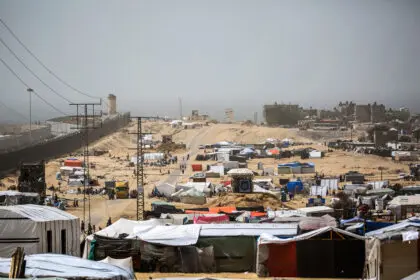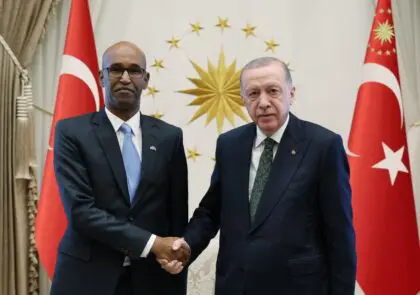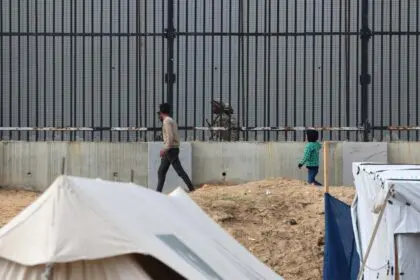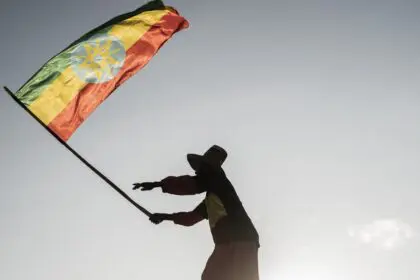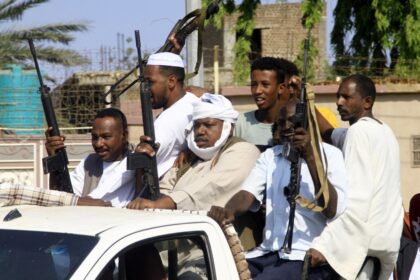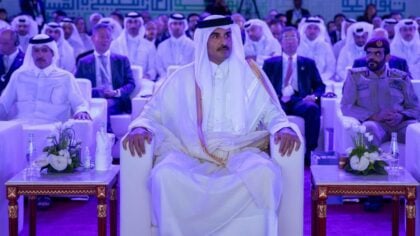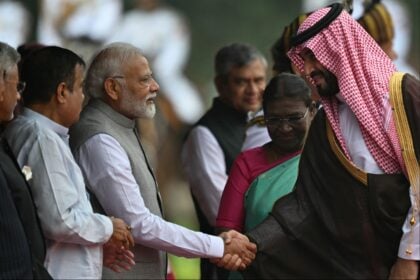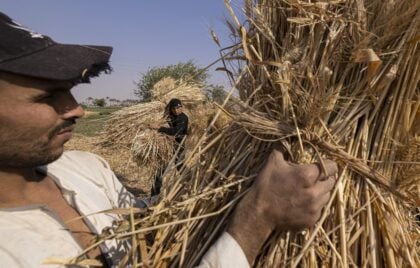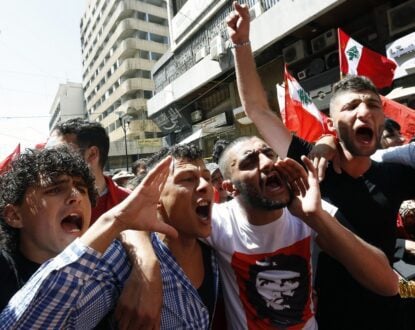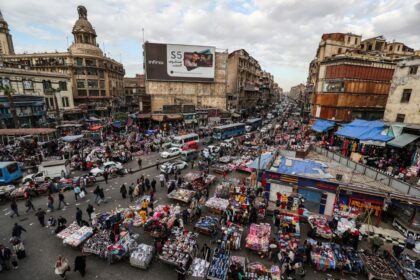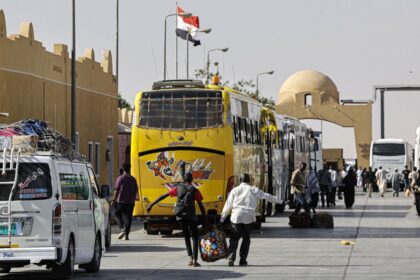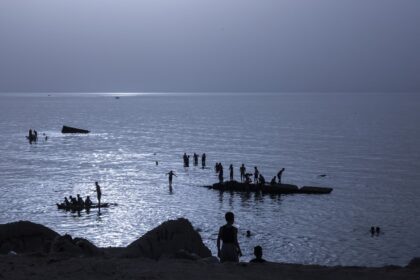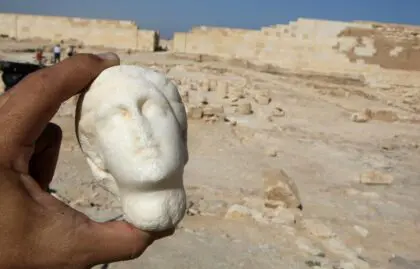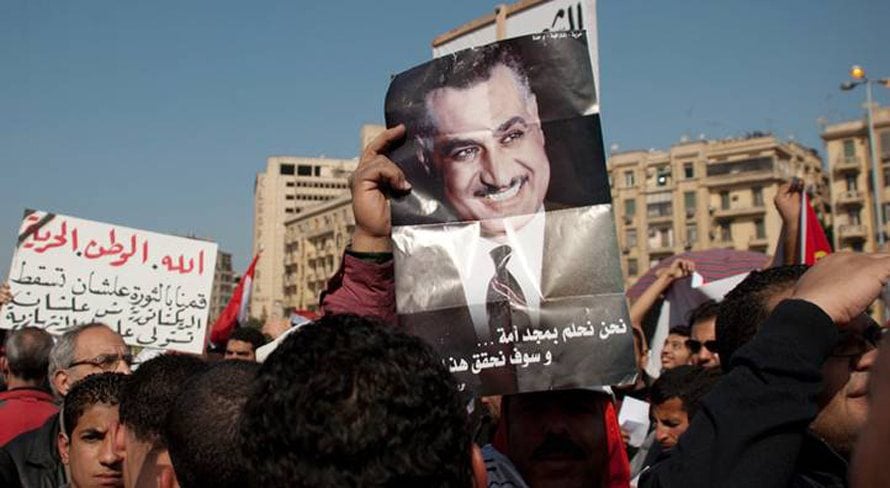
Introduction
Egypt has been a republic since King Farouk was overthrown by the Free Officers Movement in 1952. Although the President Gamal Abdel Nasser banned all political opposition, in a monopoly of power within the Arab Socialist Union (ASU), his successor, Anwar Sadat restored some competition in the political arena, through introducting a new Constitution in 1971.
In the aftermath of the January 2011 revolution and President Hosni Mubarak’s resignation, the Supreme Council of the Armed Forces issued a declaration announcing the introduction of an amended constitution. In December 2012, the constitution was presented to the people for referendum and came into effect under President Mohamed Morsi.
Following the July 2013 ouster of Morsi in a military coup led by Abdel Fattah al-Sisi, an interim president, Adly Mansour, was appointed and a committee was formed to revise the disputed articles in the constitution. After al-Sisi won the 2014 presidential elections, this version of the constitution was approved and adopted.
The Constitution stated that Arabic is the official language of the country, that Islam is the state religion, and that the principles of the Sharia (Islamic law) are the principal source of legislation. The Constitution granted equality to all citizens, irrespective of religion, race, or sex, within the limits of the Sharia.
On paper, Egypt is a democracy. It has a bicameral, multiparty system and regular elections. The Constitution envisions a powerful executive branch and a relatively weak legislature.
The Presidency
Under the system that existed under Nasser, Sadat, and Mubarak, the President served a term of six years. There was no limit to the number of times the President could be re-elected. The President had the power to dissolve Parliament and enjoyed full discretion to remove the Prime Minister, his cabinet, and governors. Senior army and security personnel, deans of state universities, high-court judges, major religious figures, and other key officials were all appointed and dismissed by the President.
Until 2005, the President was chosen in single-candidate elections. He was nominated by a two-thirds majority of the People’s Assembly and subsequently confirmed in a popular referendum without competition. Political reforms announced by President Mubarak in early 2005 – which were, according to most analysts, primarily the result of American pressure – resulted in the amendment of the Constitution to allow for the first multi-candidate presidential elections to be held on 7 September 2005. Mubarak won by a landslide (88.5 percent of the registered voters with a turnout of only 23 percent, according to official statistics).
New provisions in the Constitution, which was amended again in March 2007, required that a presidential candidate be nominated by at least 65 (of a total of 464) members of the People’s Assembly, 25 (of a total of 254) members of the consultative Shura Council, and ten members of municipal councils from at least fourteen governorates. In addition, the candidate must belong to a legal political party that has been in existence for at least five years and holds at least 3 percent of the seats in the People’s Assembly. Political parties based on religion, gender, or ethnicity are banned.
During the short-lived reign of President Muhammad Morsi, the Constitution was amended. The President’s powers were limited. The number of terms was limited to two and the length of the term shortened from six to four years. According to this version of the Constitution, the President may only be re-elected once (Article 133). However, the President would still appoint one tenth of the members of the Upper Chamber of Parliament (Article 128). In addition he would appoint the heads of nearly all independent agencies (Article 202), including the audit institution and the central bank, threatening their independence and ability to monitor the executive. On the other hand, the Constitution drafted by an Islamist-dominated committee, gave the Parliament significant authority in the government formation and the power to question and dismiss the Prime minister and his ministers.
However, as part of the transition following the military coup that ousted President Muhammad Morsi, the Constitution drafted under Morsi was modified. Some of the powers of the President were restored. The President was granted the right to issue or object to laws (article 123); this clause was not included in the 2012 Constitution. Article 146 allows the President to choose the Ministers of Justice, Interior and Defence in case the government is chosen from the party or coalition that holds a plurality of seats at the House of Representatives. Furthermore, a newly added clause in article 102 allows him to appoint a maximum of 5 percent of the Parliament members.
Both versions of the constitution stripped the President of some of his powers; the 2012 Constitution gave the military relative autonomy, granting it the right to approve its own budget and oversee the military judiciary. In the 2014 Constitution, this autonomy was strengthened and moreover, the police force has been withdrawn from the President’s authority (article 206).
A constitutional referendum in January 2014 resulted in support for the new constitution. At the end of May of that year, Abdel Fattah al-Sisi was elected President with 96.9 percent of the votes.
The Legislative
The People’s Assembly, CairoThe People’s Assembly (Majlis al-Shab) consists of 454 members. 444 seats are contested in multiparty elections every five years in 222 two-member constituencies. At least half of the members must be workers or farmers. Ten members are appointed by the President, usually from among women and Coptic Christians, in order to secure their political representation in the assembly.
Ever since the establishment of the National Democratic Party (NPD) by Sadat, it has held a majority of the seats. In effect, the People’s Assembly has been little more than a rubber-stamp institution, although lively debates have occasionally taken place. The People’s Assembly has a limited mandate. The government does not need to seek its approval before drawing up the budget for the coming year. The Minister of Finance can be held accountable only for past expenses. Parliament has no oversight of the defence budget.
The Shura Council (shura is Arabic for ‘consultation’) is sometimes thought to resemble an upper house or senate, but it has much less authority. The institution that was founded in 1980 is mostly a consultative council. Only certain types of legislation need to pass through the council; its deliberations are not binding, and it has no power to initiate laws on its own.
The only real power the Shura holds is its authority to vet applications for the establishment of political parties and newspapers through, respectively, the Political Parties Committee and the Supreme Press Council. The Shura consists of 264 members, two-thirds of whom are elected through national elections. Every three years elections take place for half of those seats. The President appoints the remaining one-third of the seats. The term is six years for all members.
The Judiciary
On paper, Egypt’s judiciary is largely independent, but the executive branch – that is, the ruling government – tends to lean on the judiciary to get its way. Many judges are calling for greater independence from the executive branch through their professional association, the Judges’ Club. In 2006, this led to a confrontation between the Judges’ Club and the ministries of Justice and Interior, resulting in street protests and arrests. The issue remains unresolved.
The Egyptian Supreme Judicial Council, controlled by the Ministry of Justice and appointed by the President, oversees the judiciary and must approve appointments, pay, promotions, and transfers of individual judges.
Even if the judiciary acts independently, the court rulings are often ignored by the Ministry of Interior.
The independence of the judiciary is further compromised by the state of emergency and the Emergency Law that had been in force since 1981 (the state of emergency terminated on 31 May 2012). This allowed for the bypassing of the civil courts and referrals to state security courts and military tribunals, whenever the President saw fit.
The Family Court was established in 2004 and applies the Personal Status Law, based on the Sharia, to both Muslims and non-Muslims regarding inheritance. For all other matters regarding family and personal status, non-Muslims fall under separate legislation. There are no religious tribunals.
Political Parties
The headquarters of the National Democratic Party set on fire during the 2011 uprising. Photo Wikipedia
National Democratic Party (dissolved in 2011)
Following the 1953 revolution by the Free Officers Movement, Egypt was ruled by a one-party system, which was formalised by Nasser through the creation of the Arab Socialist Union (ASU) in 1962.
After Nasser’s death in 1970, President Anwar Sadat began a tightly controlled experiment to introduce some degree of democracy. In essence, this meant that the three slightly different political inclinations within the ruling ASU (right, left, and centre) were allowed to form separate parties.
The centre fraction, led by Sadat himself, first became the Arab Socialist party of Egypt (Hizb Misr al-Arabi al-Ishtiraki); in 1978 he renamed it the National Democratic Party (NDP) and designated it the official government party.
After Sadat’s assassination in 1981, the party was chaired by his successor, Hosni Mubarak. The party had no clear ideological direction, apart from being nationalist, secular, and conservative. In fact, the NDP has often been described as a patronage system characterised by cronyism.
In 2000 the party began to see the rise of a handful of industrialists and business technocrats close to President Mubarak’s son Gamal. Over the years, the position of the governing NDP was challenged. In the parliamentary elections of 2000 and 2005, many of the designated NDP candidates lost to an increasing number of independent candidates. Although most of these independents were, in fact, affiliated with the governing party and joined its ranks after being elected, many could not be counted on to vote automatically in favour of the government. They could be seen as new clients who tried successfully to tap into the patronage system.
Thanks to large-scale vote rigging, the NDP won 80 percent of the votes in the 2010 elections for the People’s Assembly (420 of the 444 contested seats, an increase of 11.5 percent). Shortly after the fall of President Mubarak the NPD was dissolved and its properties confiscated by the state.
Opposition
During the Sadat-Mubarak era, Egypt’s opposition was weak and divided. Most parties were split or paralysed by internal strife. In 2010, more than half of the 21 official, legal parties that made up the opposition were no longer functioning. Development of a strong opposition was stifled by Mubarak’s regime, mainly by making it difficult to obtain a license for an official party. In the last years of Mubarak’s rule only a few new parties were allowed, such as the Democratic Front Party, in May 2007, which consisted of former NDP members. A committee of the Shura Council vets applications for a party license. The main opposition parties that were established under the rule of Anwar Sadat or Hosni Mubarak and that still exist are:
The National Progressive Unionist Party (1977)
The former left wing of the ASU that Sadat allowed to form a party of its own was originally a secular leftist party. The Tagammu, as it is known in Egypt dialect, is now associated by many other leftists with the former regime and considered more centrist than left. It entered the post-revolutionary parliamentary elections of 2011 in the Egyptian Bloc liberal alliance and won three seats.
The Liberal Party (1977)
The former right wing of the ASU, the Liberal Party is a conservative, rightist party with a a liberal approach to the economy. Also viewed as affiliated with the former regime, the party entered the parliamentary elections of 2011 in the Democratic Alliance (al-Tahaluf al-Dimuqrati min ajl Misr), one of the two Islamist alliances.
New Wafd Party (1978)
The New Wafd Party is an extension of the old al-Wafd (Arabic for ‘delegation’), a hugely popular liberal-democratic political party founded in 1918, which challenged both the king and the British occupiers. It was dissolved by Nasser in 1952.
Under Sadat, the party was re-established as the New Wafd in 1978 but banned two months later, only to re-enter politics in 1981. Its return was a point of hope for the opposition, and the party successfully re-entered political life in 1986 when they strengthened their lists with several Muslim Brotherhood members and won several seats in the parliamentary elections. After the death of the charismatic New Wafd leader Fouad Serageddinin 1999, the party’s popularity declined.
The New Wafd is can be described as a non-Islamist conservative party that advocates a liberal market policy. The party publishes its own newspaper, al-Wafd.
The New Wafd entered the parliamentary elections of 2011 as an independent party. Winning 42 seats, it was the most successful non-Islamist party.
The Arab Democratic Nasserist Party (1992)
The Arab Democratic Nasserist Party was established in response to Sadat’s liberal market policies, which the members of the party perceived as a deviation from the economic path set out by his predecessor, Nasser.
A secular, leftist party, it entered the parliamentary elections of 2011 and won a single seat.
Tomorrow Party (2004)
The Tomorrow Party is a reformist party with a liberal approach to the economy. It was established by former New Wafd member Ayman Nour, who ran against Mubarak in the presidential elections of 2005. He was found guilty of forgery immediately afterwards and spent five years in prison.
Shortly before Nour was sentenced, internal strife caused the party to split into two factions. One of these, headed by Moussa Moustafa Moussa, still bears the original name. The other, headed by Ayman Nour after he was released from prison, was licensed as a political party in 2011 and calls itself Tomorrow of the Revolution Party (Hizb Ghad al-Thawra). The latter joined the Islamist bloc, the Democratic Alliance for Egypt, in the parliamentary elections of 2011 and won two seats.
Post-revolutionary Parties
 Campaigning for the Freedom and Justice Party candidate Muhammad Morsi. May 2012[/caption]
Campaigning for the Freedom and Justice Party candidate Muhammad Morsi. May 2012[/caption]
The Freedom and Justice Party (2011)
The Freedom and Justice Party (FJP) is the political party of the Muslim Brotherhood (MB, Jamaat al-Ikhwan al-Muslimin), one of Egypt’s oldest opposition movements.
The Muslim Brotherhood is an Islamist movement that was officially banned in Egypt and was thus unable to operate as a political party. The Muslim Brotherhood was established in 1928 by Hassan al-Banna, a Sufi school teacher from Ismaïlia, who was a student of the political-Islam thinker Rashid Rida. Al-Banna, like Rida, believed it was necessary to preserve what he perceived to be the Islamic identity and the Islamic way of life in the face of foreign occupation and foreign influences on Islamic society. The Koran and the Sunna provide the perfect solution to any problem and form the perfect basis of an Islamic government.
The Muslim Brotherhood’s violent approach to activism against the British occupiers and the Egyptian government caused them to be formally banned as a movement since 1954 and to be persecuted by the Egyptian government. Many MB members were detained (often without formal charges), imprisoned, and tortured. Particularly under the regime of Mubarak, who had been traumatised by the assassination of his predecessor, Anwar Sadat, at the hands of an Islamist movement, the MB suffered greatly. They were sentenced in military tribunals, and any student suspected of MB affiliations was barred from entering student-body elections and, in some cases, prevented from graduating. The Muslim Brotherhood renounced violence formally in the early 1980s and entered formal politics by joining the party list of the New Wafd Party in 1986 as individual candidates. Later the MB often entered the elections as independents, winning an amazing 88 seats in the 2005 elections.
The MB now advocates an Islamic state, the Constitution of which should be based on Islamic jurisprudence as embodied in the Sharia. As a consequence, the movement also changed its motto, from ‘God is our objective. The Prophet is our leader. The Koran is our constitution. Jihad is our way. Dying for the sake of God is our highest hope’, reducing it to simply ‘The Prophet is our leader and the Koran is our constitution’, but this has been replaced on the movement’s emblem, which features two crossed swords under which are the words, ‘And prepare’. This is the beginning of the Koranic verse 8:60: ‘And prepare against them whatever you are able of power and of steeds of war by which you may terrify the enemy of God and your enemy’. Because of the danger of persecution, the Muslim Brotherhood never disclosed the identities of its members and its membership numbers. The organization is led by a Guiding Council (maktab al-irshad) of thirteen persons, headed by the Supreme Guide (al-murshid al-ala), currently Muhammad Badie (born 1943), a veterinarian by training. In the last elections under Mubarak’s rule, in 2010, large-scale forgery and rigging prevented the MB from winning more than one seat in Parliament, in spite of its huge popularity, particularly in the countryside and the poorer urban neighbourhoods and among the middle class that had arisen from nouveau-riche businessmen.
The MB at first opposed the demonstrations of 25 January 2011, although their youth movement took part right from the start. The MB formally joined the protests after they gained momentum and have been and are still accused of exploiting its popularity by many revolutionaries, including their own youth movement, some of whom left the MB altogether after Mubarak stepped down.
In the post-revolutionary transitional period, the MB mostly supported the rule of the SCAF and did its best to reach compromises and deals with the military in order to obtain the movement’s coveted power. In spite of the SCAF’s law banning religiously-based parties, the movement founded the Freedom and Justice Party (FJP) at the end of April 2011. Changing the original MB political slogan ‘Islam is the solution’ (al-Islam huwa al-hall) to ‘Bringing the best to Egypt’ (nahmil al-khayr li-Misr), the FJP highlighted the revolutionary slogan ‘Bread, Freedom, Social Justice’ as representing intrinsic parts of the Islamic tradition and law, adding that democracy, too, is part and parcel of Islam. While the strong protests in downtown Cairo were met with brutal force, the FJP entered the parliamentary elections in the Democratic Alliance for Egypt, winning the vast majority of 217 seats. They also won the vast majority of seats in the Shura elections.
In the recent presidential elections, the FJP candidate, Muhammad Morsi defeated Ahmed Shafik, the last Prime Minister appointed by Mubarak.
Al-Nour Party (2011)
Al-Nour can be described as the political arm of the Salafi Call movement (al-dawa al-salafiya) of Egypt, a religiously conservative movement of Muslims who believe in strict adherence to the way of life of the Prophet and his Companions (the salaf), in accordance with the Koran and Sunna and the strict implementation of the Sharia.
Licensed in June 2011, the rightist Nour party led the Islamic Bloc Coalition in the parliamentary elections of the fall of 2011. It came second after the FJP, winning 111 seats.
The Building and Development Party (2011)
The Building and Development Party (BDP) is right-wing, conservative Islamist and is the political arm of al-Jamaa al-Islamiya (‘The Islamic Group’). Al-Jamaa al-Islamiya developed in Egyptian universities in the 1970s and was originally dedicated to overthrowing the Egyptian state and replacing it with Islamic rule. Like many other movements of that period, it was nihilist in its approach and advocated the use of violence as an inevitable means to obtain the ultimate goal.
The Jamaa is responsible for various terrorist acts inside Egypt in 1990s, among them a carefully planned attempt to assassinate Mubarak in 1995. Outside of Egypt, the Jamaa was responsible for the 1993 attack on the New York World Trade Center, which was led by the blind sheikh Omar Abdel-Rahman, who is in prison in the United States.
The Jamaa was targeted by Mubarak in the fiercest crackdown on Islamist groups in the 1990s. Several imprisoned members repented and renounced violence in 2003.
The BDP believes in representative democracy with institutions guided by the principles of the Sharia and rejects any form of theocracy. It has a liberal approach to the economy. It gained thirteen seats in parliament after entering the elections as part of the Nour led Islamic Bloc.
The New Wasat Party (2011)
The first party to be licensed after the revolution was the former Wasat Party (‘The Centre Party’), now known as the New Wasat Party.
The original Wasat party was established in 1996, having split from the Muslim Brotherhood, headed by Abou Elela Mady. The party tried to obtain a license under the Mubarak regime but was refused, accused of being a political front of the Brotherhood. After the revolution of 25 January 2011, al-Wasat was finally formally recognized.
Considered a moderate Islamist party, al-Wasat believes in the interpretation of Islamic law in a way that conforms to liberal democracy. It is an economically conservative party and the only Islamist party to recognize the right of a Christian Copt to be elected to the Presidency of Egypt.
The Reform and Development Misruna Party (2011)
The Reform and Development Misruna Party (RDP) was established by Anwar Esmat al-Sadat, the nephew of former President Sadat, and the Egyptian billionaire businessman Rami Lukah. It is a secular, centrist, liberally economic party that entered the 2011 parliamentary elections in the liberal coalition, the Egyptian Bloc, and won nine seats.
The Free Egyptians Party (2011)
Founded by the Coptic Christian billionaire businessman Naguib Sawiris, the Free Egyptians Party (FEP) is a secular democratic party with a liberal market approach. It suffered from internal disputes and disagreements when it was revealed that a number of former NDP members were allowed to join the party.
The FEP led the liberal coalition, the Egyptian Bloc, in the parliamentary elections of 2011 and won fourteen seats.
The Egyptian Social Democratic Party (2011)
The Egyptian Social Democratic Party (ESDP) is a secular, social-democratic party. Led by Muhammad Abou al-Ghar, a political activist and obstetrician-gynaecologist, the party boasts several centre-leftist celebrities among its members. It joined the Egyptian Bloc and won sixteen seats in the 2011 parliamentary elections.
The ESDP was admitted into the Socialist International in August 2011.
The Popular Socialist Alliance Party (2011)
The Popular Socialist Alliance Party (PSAP) is a socialist party. Its members come from various leftist organizations, including several former members of the Tajammu Party who left the Tajammu after the infamous 2010 elections. First forming a socialist front with several other leftist organizations, it initially joined the Egyptian Bloc coalition to run for elections in 2011, but when the news broke about former NDP members joining the Free Egyptians Party that led the Egyptian Bloc, the PSAP joined forces with several small leftist parties and formed the Revolution Continues (Tahaluf al-Thawra Mustamirra) coalition.
In spite of the fact that the PSAP had the smallest campaign fund of all participating parties and coalitions, it gained seven seats in Parliament.
The Constitution Party (2012)
The most recent party to receive its license is the Constitution Party, headed by the Nobel-prize-winning former head of the International Atomic Energy Agency, Muhammad al-Baradei. Al-Baradei is also a political activist who joined the protests of 25 January and refused to run for the presidency, as he felt the elections were not being held within a truly democratic framework.
The Constitution Party asserts that it is for every Egyptian citizen who believes in and defends the principles of the Revolution of 25 January 2011. Its slogan is true to the revolution: ‘Bread, freedom, social justice and human dignity’.
Political Movements
In addition to the aforementioned Islamist movements, such as the Muslim Brotherhood, the Salafi Dawa, and the Jamaa, Egypt has several secular political movements:
Enough (Harakat Kefaya), or the Egyptian Movement for Change (2005)
Kefaya (Enough) is a grassroots movement that emerged in 2004 in opposition to the intended takeover of the presidency by Mubarak’s son Gamal, the growing corruption of the state, and Egypt’s political stagnation. Its origins, however, can be traced back to 2000, during the protests in support of the Second Intifada in Palestine. This may explain how Kefaya attracted opposition activists from all backgrounds, from Marxist to Islamist. The movement organized demonstrations that were unprecedented in their popularity and in the brutal oppression they faced from the security forces and the hired thugs of the NDP.
Over the years, Kefaya lost momentum, as it lacked direction and suffered from internal dissent. The movement was, however, still able to mobilize (fewer) demonstrators for specific issues. They participated in the Revolution of 25 January.
In the recent presidential elections, Kefaya supported Muhammad Morsi against Ahmed Shafik.
The 6th of April Youth Movement (2008)
Inspired by the workers’ strikes of 2008, the 6th of April Movement started as a group of young activists, among them Ahmed Maher and Esraa Abdel Fattah who set up a Facebook page that indexed all scheduled strikes and suggested protests in support. One of these protests, in support of the strikes in the textile factories of the town al-Mahalla on 6 April 2008, grew into a mass event that was crushed violently by state security forces. Several young men were arrested and, upon their release, the movement’s establishment was announced.
The 6th of April is a grassroots political-action movement that developed a large popular base of support over the years. It does not define itself ideologically but can be characterized as inspired by the principles of social democracy.
The movement played a key role in the Revolution of 25 January 2011. It has been attacked physically and in the media but continues its activities to the present. The movement has made a conscious choice not to apply for a party license yet, preferring to develop itself further first.
Internal strife caused the movement to split into what is now known as the 6th of April Youth Movement, headed by Ahmed Maher, and the 6th of April Democratic Front, led by Tarek al-Khouly.
In the recent presidential elections, the 6th of April movement supported the Islamist candidate, Muhammad Morsi, against Ahmed Shafik, who was perceived by most opposition movements as an extension of the Mubarak regime.
The 6th of April movement found inspiration in the Serbian Otpor! (Resistance) movement and adopted its emblem, the raised clenched fist, as its own. Today, the 6th of April Movement has branches in various countries within and outside the Middle East.
The Revolutionary Socialists’ Movement
The Revolutionary Socialists’ Movement (RS) is a Trotskyite organisation that developed in the 1980s at Egyptian universities. Because the leftist movements, like the Islamist ones, were mostly forced to operate underground under Mubarak’s rule, the RS did not often surface until the protests during the Second Palestinian Intifada, when the movement began to gain members.
The RS played an important role in supporting and developing the workers’ strikes in Egypt and were instrumental in mobilising people during the Revolution of 25 January. Since the revolution, the movement has occupied itself successfully with the development of trade unions, supporting the workers’ strikes, and has recently begun campaigns in low-income neighbourhoods to increase awareness of economic and social rights and to draw attention to the needs and wishes of the mass of poor people of Egypt.
Historically, the leftist movements of the Middle East equated the Islamist trend with fascism and refused any cooperation. The RS are an exception, as they adopted the slogan ‘Sometimes with the Islamists, never with the state’. In the recent presidential elections, the RS, under the leadership of sociology professor Sameh Naguib, therefore chose what it perceived as the only way to end the former regime’s influence on politics and supported the Islamist candidate, Muhammad Morsi.
The RS movement is connected with other revolutionary socialist and workers’ movements all over the world.
Corruption
The organisation Transparency International ranked Egypt 118th out of 176 countries in its Corruption Perceptions Index, scoring just 3.2 points out of a possible ten. Freedom House accords Egypt 1.7 out of a maximum seven points for ‘anti corruption and transparency’, asserting that corruption is endemic in Egypt.
Indeed, relations within and between the government, the civil service and the private sector under Mubarak were characterised by personal connections (so-called wasta), cronyism, nepotism, and favouritism. Egypt’s underpaid civil service, which makes up its huge bureaucracy, are known for expecting bribes. Particularly worrying is the practice of bribery in education, where teachers expect financial compensation in return for passing grades.
Corruption was and remains one of the main issues for the various revolutionary groups that participated in the Revolution of 25 January. The arrest of the main figures in government and from the business world was a very important demand of the revolution. Although many figures were indeed arrested and tried in court, most were convicted to a minimal amount of time and small fines or were set free after having being found innocent of any crime.
President Morsi has recently been accused of striking deals with a number of known corrupt businessmen, offering them rehabilitation in exchange for money and business deals. On his trip to China in August 2012, he was accompanied by a few well-known businessmen who had been close to Mubarak.
Bureaucracy

Bureaucracy is a huge problem in Egypt. An estimated 5.6 million civil servants (24 percent of the total labour force) are infamous for obstruction. The government guarantee, introduced under President Nasser, to offer jobs to all university graduates has now been abandoned, but it leaves its mark on the overstaffed and inefficient civil service. For example, a study by the World Bank in 2008 reported that property registration required seven procedures and took 193 days in Egypt, at a cost of 5.9 percent of the property value.
Latest Articles
Below are the latest articles by acclaimed journalists and academics concerning the topic ‘Politics’ and ‘Egypt’. These articles are posted in this country file or elsewhere on our website:




